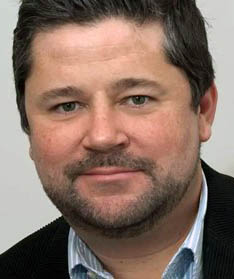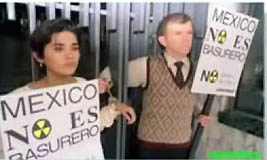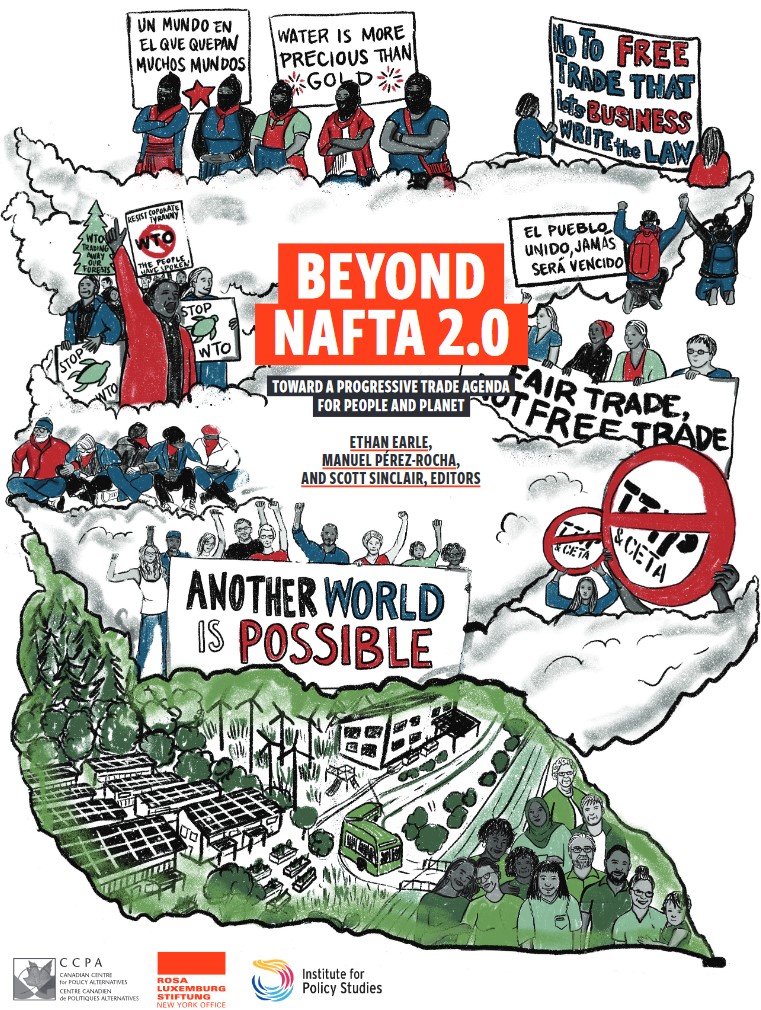|
|
|
|
The weekly newsletter of the México Solidarity Project |
|
|
|
July 28, 2021/ This week's issue/ Meizhu Lui, for the editorial team |
|
|
Two Takes on Sovereignty: Which Promotes Freedom? |
|
Freedom has never been free. The Africans enslaved in Haiti had to battle against all odds to get free from the shackles of French colonial rulers, who wanted to afford their owning class the benefit of free labor. But that freedom came with a heavy price that they continue to pay for the unimaginable affront of being a black people that defeated a white people and for the fear their freedom raised among all white supremacist nations.
Europe and its prodigal son, the United States, have continued to invent new ways to deny non-white peoples and nations the freedom to govern themselves. In the most recent “free” trade agreement, the USMCA, México has still not become an equal partner.
One of the most egregious provisions of “NAFTA 1.0” allowed foreign companies to sue national governments for infringing on their freedom to make enormous profits, even when their activities would destroy natural and human resources, as Manuel Perez-Rocha explains in this week’s issue. The new USMCA ends that provision for the US and Canada, but not for the US and México. US corporations can still challenge and threaten Mexican sovereignty.
The US and Mexican reactions to recent protests in Cuba perfectly illustrate the different foreign policy principles these two countries apply to situations that involve a nation’s freedom to govern itself. President Biden supports political intervention in favor of those who want to be “free” from a socialist government. President López Obrador, as we note below, sees Cubans needing the “freedom” from the US blockade that would allow food and medicine to get to their island nation.
US policy continues to coerce governments of the Americas to follow the dictates of the “land of the free." México’s policy? Send food and medical aid where needed, without interfering in other nations’ sovereignty. |
|
|
Manuel Pérez-Rocha, a dual Mexican and US citizen, has been a long-time member of the Mexican Action Network on Free Trade and has led efforts to promote just and sustainable alternative approaches to trade and investment agreements over the past two decades. An associate fellow at the Institute for Policy Studies in Washington and an associate of the Transnational Institute in Amsterdam, Pérez-Rocha co-edited the comprehensive 2019 trade analysis, Beyond NAFTA 2.0. He also writes regularly for the Mexican daily La Jornada. |
|
|
The original NAFTA let foreign firms sue governments that put in place policies that benefit their own people, on the claim that these policies limit foreign profit. How did NAFTA do that?
Chapter 11 of NAFTA includes a set of “Investor-State Dispute Settlement” — ISDS — procedures. If foreign investors feel that a government is hampering their profits, including their estimated “expected profits,” they can demand “compensation.” The cases go before a supranational tribunal, usually the World Bank’s International Centre for Settlement of Investment Disputes. The US and European Union dominate these tribunals. No Mexican company has ever won a case versus the US or a European country. But México has lost many cases and many more are pending, for a staggering $5.97 billion at least. |
|
To give one example, the US hazardous waste company Metalclad sued the Mexican government for $16 million, “plus damages,” after the people of San Luis Potosí raised environmental concerns and opposed a facility the company wanted. That led to a permit not being granted.
Didn’t the United States-Mexico-Canada Agreement — the USMCA — eliminate ISDS? |
|
|
This new agreement eliminated ISDS between the US and Canada, but not between the US and México. The agreement does put in place some new limits on investor claims, like requiring that domestic remedies be exhausted first and ending arbitrary claims around “expected profits.” But for certain sectors that have government contracts — oil and gas production, telecommunications, transportation, certain infrastructure, and power generation — the old ISDS rules still apply.
And for disputes between any of the three signatory countries, a “legacy investment claim clause” covers investments made under NAFTA. This clause protects these investments for three years after NAFTA. One example: The oil company Trans-Canada sued the US government for $15 billion after President Obama nixed the Keystone Pipeline. Trump reversed that decision, so the suit was dropped. But President Biden has nixed the pipeline again, and the suit has been reintroduced under the legacy clause.
Why would AMLO accept these onerous provisions?
Powerful oil companies were able to influence negotiations to guarantee that AMLO would not take back lucrative oil contracts. I believe it was a mistake for AMLO to agree to these terms. |
|
México has been exporting crude oil, but it buys refined oil — gasoline — from the US. Now AMLO wants México to increase its energy independence. He’s building an oil refinery and devolving power to México’s Federal Electricity Commission. This puts Mexican national interests and US — and Canadian and European — oil and electricity company interests on a collision course.
Twenty US lawmakers have just sent a letter to Biden calling on him to confront AMLO. They say AMLO is “severely” limiting U.S. companies’ access to hydrocarbon and energy markets in México, in contradiction to “the spirit of the USMCA.”
What have governments done to trigger these suits by foreign investors? |
|
|
Most have to do with new environmental protections. People around the world, from indigenous peoples in Latin America to climate activists in Sweden, have been demanding a rapid response to stop global warming. In cases including Metalclad, the Keystone Pipeline, and hundreds of other situations, people have protested, demonstrated, and put their lives on the line to protect their health and the ecosystems they depend on. Investor “rights” like ISDS are thwarting progress on tackling climate change — by threatening governments with massive financial penalties for enacting responsible environmental measures.
What needs to be done?
We need to give priority to human rights and the rights of nature over corporate rights. We also must insist that trade and investment agreements fully eliminate ISDS mechanisms.
Any future agreement must enshrine binding, enforceable obligations to combat climate change and safeguard greenhouse gas reduction initiatives from corporate challenges. And any agreement must fully protect the right to preserve, expand, restore, and create public services without trade treaty interference.
ISDS mechanisms offer one of the most blatant examples of how private corporations have usurped public power. They amount to a new incarnation of an old imperialism. Britain’s East India Company exercised direct rule in India in the 18th century. Current “free trade” agreements allow indirect rule by foreign companies. They’re coercing governments to act in the interests of corporations and against the welfare of their own people. |
|
|
|
Help build the México Solidarity Project. Forward this newsletter to a friend! |
|
|
|
|
On July 12, at AMLO’s daily morning press conference, the Mexican president answered questions about the current situation in Cuba. Pedro Gellert provided this Spanish transcript, Walter Lippmann of CubaNews the translation.
What’s your view of the protests in Cuba against the government?
AMLO: We must always be guided by the principles of foreign policy established in Article 89 of our Constitution: non-intervention, self-determination of peoples, peaceful solution of disputes, and guaranteeing human rights. |
|
|
And it must be the Cubans who decide because Cuba is a free, independent, and sovereign country. There should be no interventionism, the health situation of the Cuban people should not be used for political purposes. No politicization, no media campaigns, which are already taking place worldwide. Humanitarian support should not be used as a banner to interfere in matters that should only be resolved by the Cubans.
If the government of Cuba considers it necessary and its people demand it, the government of México can help with medicines, vaccines, whatever is required. And with food, because health and food are fundamental human rights.
What could the US do to express solidarity with the protesters?
The first thing they should do is to suspend the blockade of Cuba as most of the countries of the world are requesting.
That would be a truly humanitarian gesture. No country in the world should be encircled, blockaded. That is the most contrary thing there can be to human rights.
Are their foreign influences in the protests?
A group called Article 19, which is a journalistic association financed by the US Embassy, said it “rejects the call by the president of Cuba” [to stop the demonstrations]. Who are they to make these judgments? If it has to do with journalism, if it has to do with information, it should be transmitted with objectivity, with professionalism, without bias, not in a tendentious manner. Well, look [holding up a photo from the group’s reporting], it turns out that the image is not from Havana, it is from Egypt. A montage. The lie is reactionary, the truth is revolutionary.
What do you think of the pronouncements of the Cuban president?
When we recently had a worsening of the pandemic and we did not have doctors to attend to COVID patients, we spoke to the Cuban government and they sent us doctors and nurses, hundreds of doctors, who saved lives in our country.
So love is repaid with love, as José Martí used to say. We will always be in solidarity with Cuba and with all the peoples of the world. That is our foreign policy. |
|
|
Recent news reports and commentaries, from progressive and mainstream media,
Veracruz Becomes Latest Mexican State to Decriminalize Abortion Before 12 Weeks of Pregnancy, Democracy Now! The state joins México City, Oaxaca, and Hidalgo.
|
|
|
The Mexico Solidarity Project brings together activists from various socialist and left organizations and individuals committed to worker and global justice who see the 2018 election of Andrés Manuel López Obrador as president of México as a watershed moment. AMLO and his progressive Morena party aim to end generations of corruption, impoverishment, and subservience to US interests. Our Project supports not just Morena, but all Mexicans struggling for basic rights, and opposes US efforts to undermine organizing and México’s national sovereignty.
Editorial committee: Meizhu Lui, Bruce Hobson, Bill Gallegos, Sam Pizzigati. We welcome your suggestions and feedback. Interested in getting involved? Drop us an email! |
|
|
|
Web page and application support for the México Solidarity Project from NOVA Web Development, a democratically run, worker-owned and operated cooperative focused on developing free software tools for progressive organizations. |









